It's over in Aleppo, local facebook groups are full of reports of SAA units withdrawing beyond the airport and rebel gains are fully consolidated in the western parts. What an unimaginable disaster, I literally can't even process that this happened. We're now at Mosul level disaster, a few more days of this and we're looking at an Afghanistan level disaster. Just pure insanity, this scenario couldn't be imagined by the biggest jihadi optimist in the world.
Part three of my effortpost, these parts keep getting longer and longer. No proof reading as usual
Part Two, it gets continued in the first comment
The Rise of the Collective Shia Identity: Part Three
We move 25 years into the future with part three, we’re now in the period after the defeat in ISIS in Iraq and Syria, the Houthi revolution in Yemen, Hezbollah’s victory against Israel in 2006, and the failure of the Bahraini Uprising in 2011.
We start in Yemen, which was reunited into one state after the end of the Cold War. The first president of the new reunited Yemeni state is no one other than Ali Abdullah Saleh, former president of North Yemen and one of our favourite adventurers like we said earlier. The first real event in the history of Yemen is the start of the 1994 civil war, which ended in a decisive victory for Ali Abdullah Saleh’s Republican forces over the remnants of the South Yemen Communist Party. The republican victory could not be achieved without the strong support by Sunni Jihadist forces who received massive concessions by Saleh in order to secure their support in the war. The growing voice of the hardline Sunni Islamists in Saleh’s government angered the Houthi family, who returned to Yemen from Iran somewhere around reunification, with the aim of reviving the Zaydi traditions that were slowly fading away as Yemen took a more “Sunni” character. It is clear that the Houthis’ stay in Iran led to them being greatly influenced by Khomeini’s pan-Shia ideology, as they founded a youth group called the Believing Youth when they returned to Yemen. The Believing Youth was a loose collection of after-school workshops and summer camps for kids in the mountains of North Yemen, where they would read works by Khomeini, Nasrallah and Al Sadr. The Believing Youth would grow in size, and by the early 00s, their presence would be felt even in Friday prayers in the Grand Mosque of the capital Sanaa. Like a true paranoid Arab government, the Yemeni government would ultimately decide to arrest Hussein Al Houthi, the founder of the BY and brother of the Abdul Malik Al Houthi that we all know and love. The government failed in their attempt to arrest Hussein Al Houthi, who retreated to the mountains of Saada and started a large insurgency again the Yemeni government. He would be killed in late 2004, but a low-level insurgency continued until the Arab Spring hit in 2011.
Yemen had some of the largest protests in the whole region, which turned violent very quickly. The escalation of the protests wasn’t surprising at all, Yemen was the poorest and the least developed Arab nation out of all the relevant ones, and Saleh had been ruling the country in some form for 33 years while achieving literally nothing of note. The Houthis and their supporters would become one of the largest factions against the government in peaceful protest, and later in armed struggle against a government long past its expiry date. After around a year of clashes everywhere in Yemen, Saleh would resign and sign a power transfer agreement in Riyadh, Saudi Arabia, a place where no real peace has ever been established. An election was held in 2012, Abdrabbuh Mansur Hadi, Saleh’s best friend and former vice president would win the election with 100% of the votes in a real democracy moment. Saleh was there again in Yemen for Hadi’s inauguration. The Houthis, the southern secession movement and the Islamists all rightfully boycotted this sham election. Two years later, the Houthis would launch an offensive from the mountains towards the capital Sanaa and capture the capital very quickly after the collapse of the government forces. The Houthis then absorbed the bulk of the Yemeni Army and essentially became the new government itself, they’re not an armed group anymore, but the Yemeni state itself. When did the Houthis become a real “Shia” force and a part of the Axis of Resistance? Good question. The founding principles of the Believing Youth were explicitly Khomeinist, in response to the gradual Sunnification of the Zaydi Shia Yemenis after the final collapse of the Zaydi Imamate in the 1960s. There’s no proof of direct Iranian involvement in the founding of the group, nor any proof of direct support until the explosion of the conflict after the Arab Spring. Shiaism itself evolved with the absorption of the Houthis into the wider Shia umbrella, as it followed a similar previous step with the absorption of Assad’s Alawite faith into a wider Twelver-adjacent umbrella. The Houthis aren’t Hezbollah, where the founding itself was influenced directly by Iran, but they became closer and closer to Iran as their war with Saudi Arabia started in 2015. Just like the Iraq-Iran War became the origin story of all of the heroes of the new pan-Shia ideology, the Houthi victory in the war against Saudi Arabia and the Arab Alliance became the mythological origin of the first “pan-Shia” generation of Yemen. One such hero is Saleh Al Sammad, the first president of Yemen under Houthi rule, who was killed in a Saudi drone strike back in 2018. He received the Khomeinist martyr treatment, which was a first in Yemen. Shia-style mourning ceremonies have entered the Yemeni mainstream, and celebration of the Prophet’s birthday is now a big day in Yemen, in a clear departure from the hardline Sunni position that forbids that. The Houthis, or Ansarallah as they should be called, are now a fully integrated member of the pan-Shia movement despite not having a direct line back to Khomeini or the Al Sadr family.
We travel to Iraq again now. In 2003, something called the Iraq War, and the American Occupation happens. The Americans basically allow anyone that hates Saddam on their team, so the team that takes over the Iraqi state post-Saddam is a very dysfunctional one where Communists, Khomeinists, Kurdish nationalists, Sunni Muslim Brotherhood members, Liberal CIA assets, and random minority representants were supposed to pretend to play politics while the Americans were robbing the country. There was one crucial group that the Americans missed while building the political playhouse. That group was the Sadrists under the leadership of Muqtada Al Sadr, son of Muhammed Sadiq Al Sadr. The Sadrists split in two sometime in the late 90s, but no one had noticed that under the media suppression in Saddam’s Iraq and the general American disinterest in Iraqi attitudes while they were planning to invade Iraq. One group of Sadrists stayed in the Dawa Party and adopted more Khomeinist and pan-Shia ideas, while poorer Sadrists under Muqtada’s leadership from the slums were more into nationalist and isolationist policies within Iraq’s border. Muqtada’s group would later be called the Sadrist Movement and its military wing, the Mahdi Army, would become the main player in the Iraqi Insurgency against the American occupation and later in the sectarian civil war phase of the occupation. Muqtada’s eccentric behaviour continues to this day and the Sadrists still get themselves into wacky situations, as the group slowly morphs into a cult that finds itself on the fringes of Shiaism itself, but that’s an effortpost for another day. The Iraqi state found itself under pan-Shia Dawa Party rule from 2005 to 2018, but nothing formative happened on a state level, mostly due to the failure of the American occupation and the grave incompetence of the new cast in Iraq. The most notable change during that period was that Iran was slowly becoming the main foreign player in Iraq, after several missteps by the US and their Arab allies. The war against ISIS is when large sections of Iraqi Shia society were absorbed into the Iranian pan-Shia network with the creation of the Hashd Al Shaabi (Popular Mobilization Units, or PMU for short). The PMU was essentially Iraq’s own Hezbollah, an explicitly pan-Shia organization that was created with a clear religious background. The creation of the PMU itself came after a ruling from Ayatollah Ali Al Sistani, who is the current Grand Marja of the faith. He issued a ruling that called for global Shia jihad against ISIS after the collapse of the Iraqi Army and the fall of large cities such as Mosul, Fallujah and Tikrit into ISIS hands. Iranian government support through the IRGC was open and direct, with PMU head Abu Mahdi Al Muhandis and IRGC commander Qassem Soleimani being on the frontlines together and forming a shared war room. The pan-Shia framework of open commemoration of martyrs with clear religious messaging was fully imported to Iraq and became the dominant ideological marker in the Shia south of Iraq. I remember visiting Baghdad with my wife sometime before Covid and literally every single street in the capital had some pictures of martyrs.
cont.
Has Russia captured a McDonald's anywhere in Ukraine so far? I'm pretty sure that Mariupol didn't have one. Hexbears come on please find me a pic of some Akhmat guy standing in a captured McDonald's
I think it's now fair to call what's happening in Pokrovsk a big collapse for the AFU, perhaps the biggest since the lines stabilised in late 2022. The whole South Donetsk front has completely broken for the AFU, with barely any fighting units left because of the Kursk adventure and there are barely any fortifications at this point. The Ukrainians in true capitalist fashion gave the contracts for digging fortifications to private entities who stole the money and didn't dig anything beyond the areas close to the January 2024 frontline near Avdiivka, so it's now a big problem when the front has moved 35kms further. Everything that moves into the Donbass goes through Pokrovsk and Myrnograd, and Russians are now 7km from Pokrovsk and 1km from Myrnograd. Pokrovsk is also the gateway into Dnipro Oblast, which is the most valuable Oblast for Ukraine with its farmlands and massive Soviet industry. If Pokrovsk falls before the end of 2024, then Russia will basically be in a position where the entirety of Donetsk Oblast falls in 2025, and they can even rush along the E50 and the railroad straight towards Pavlograd by the end of 2025. It's a horrible situation for the AFU in South Donetsk, everything from Pokovsk to Kurakhove to Ugledar is on the verge of collapsing now.
Some of the sights in the ongoing Arbaeen pilgrimage in Iraq:
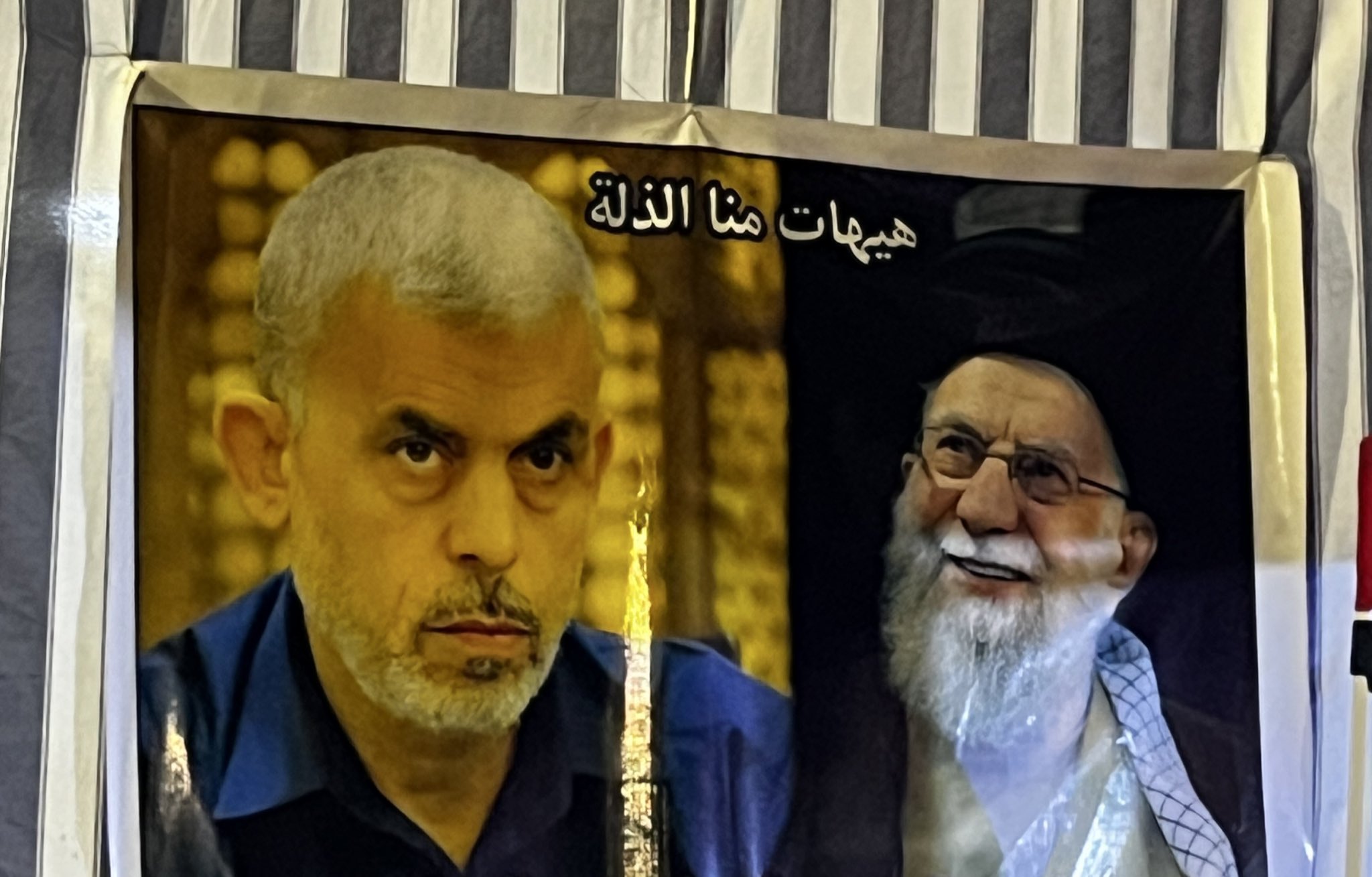
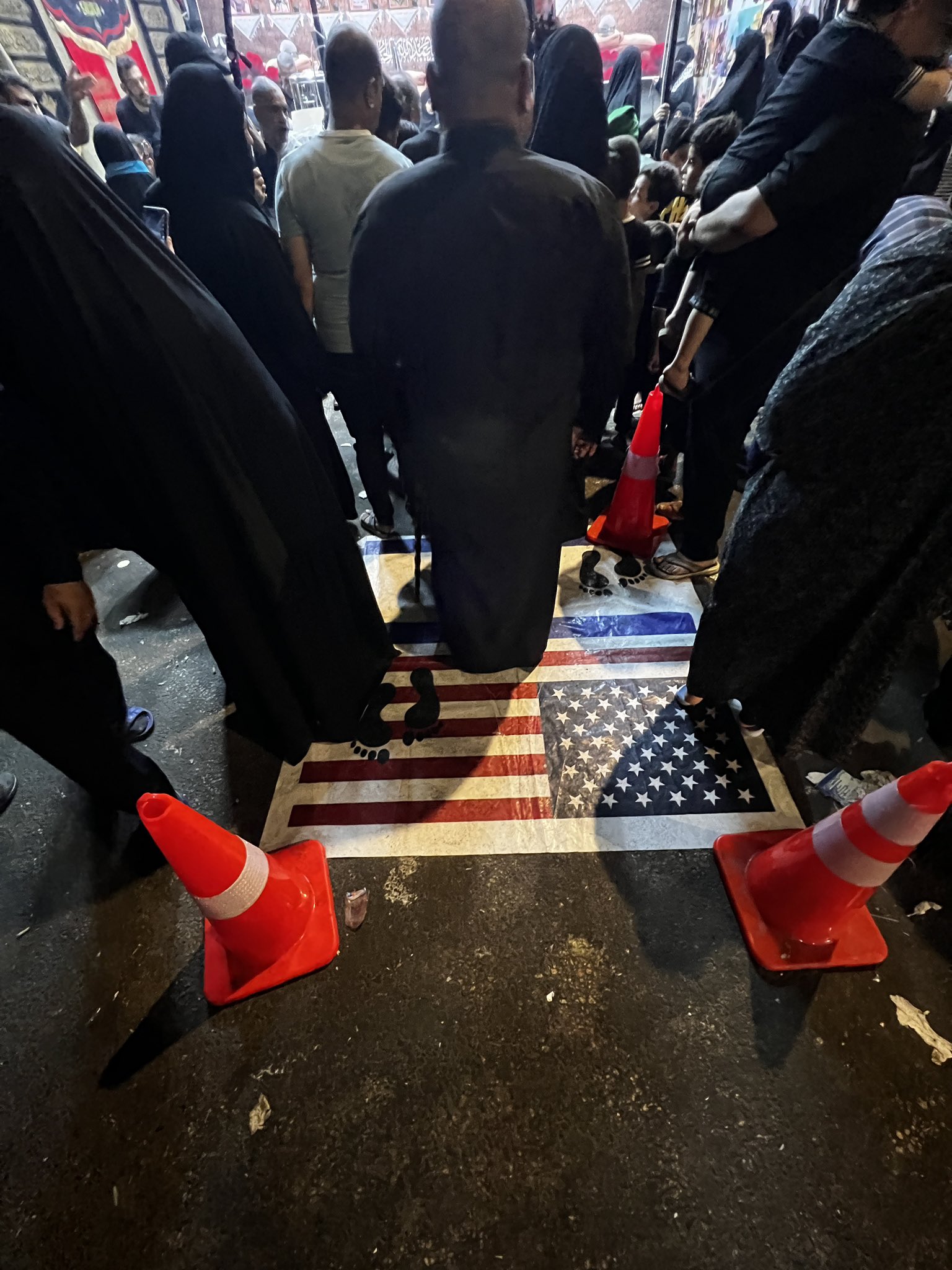
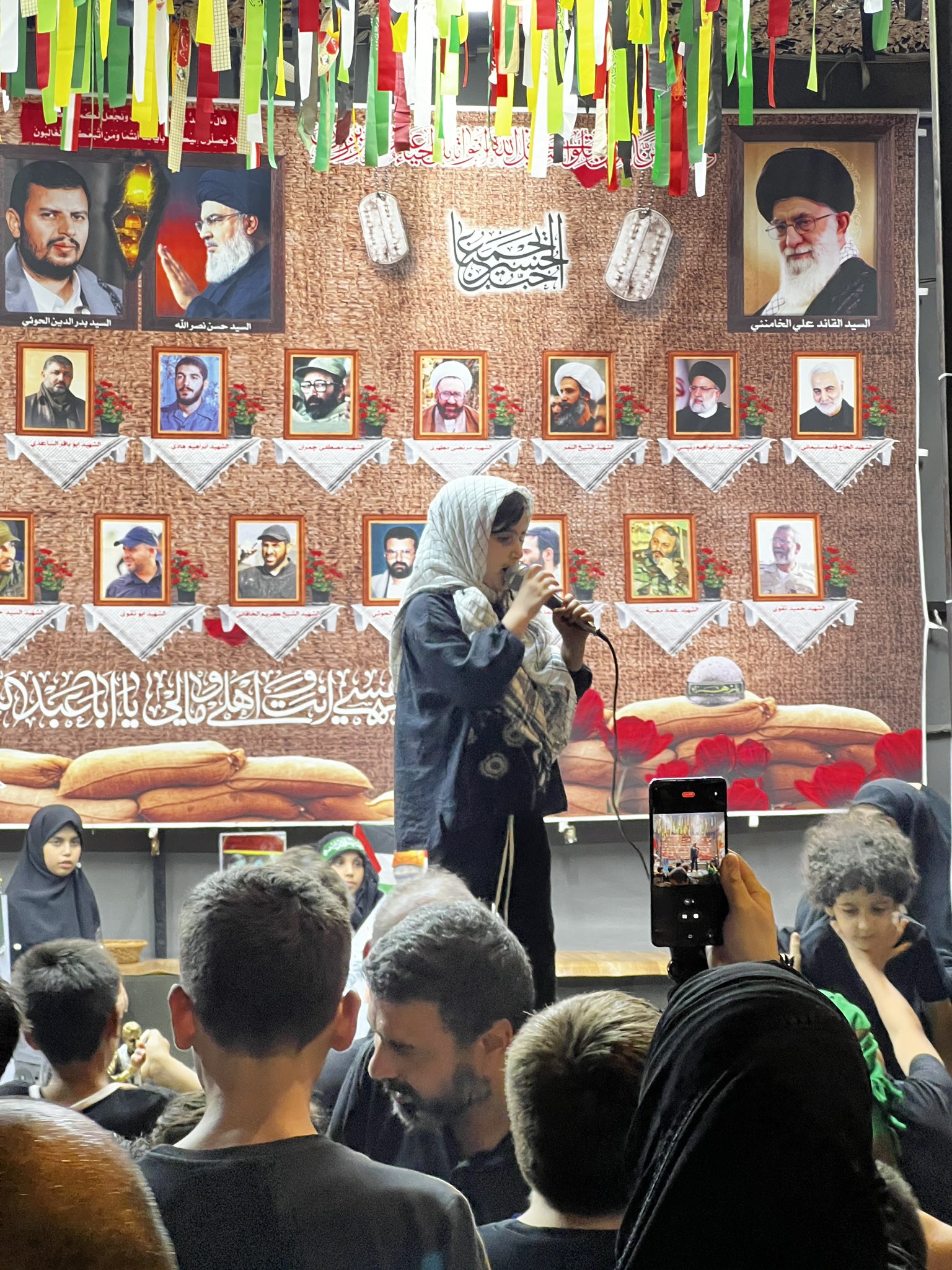
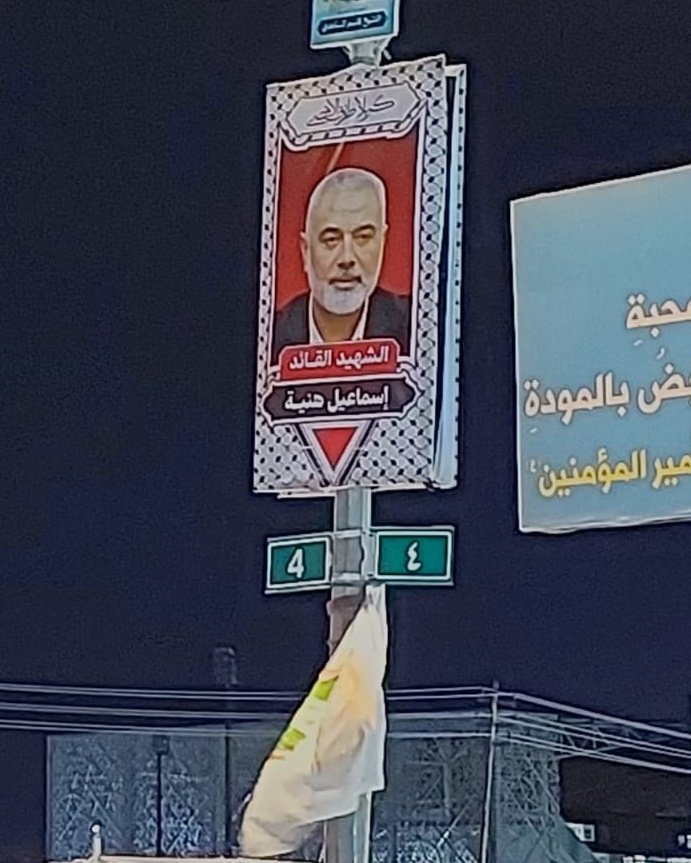
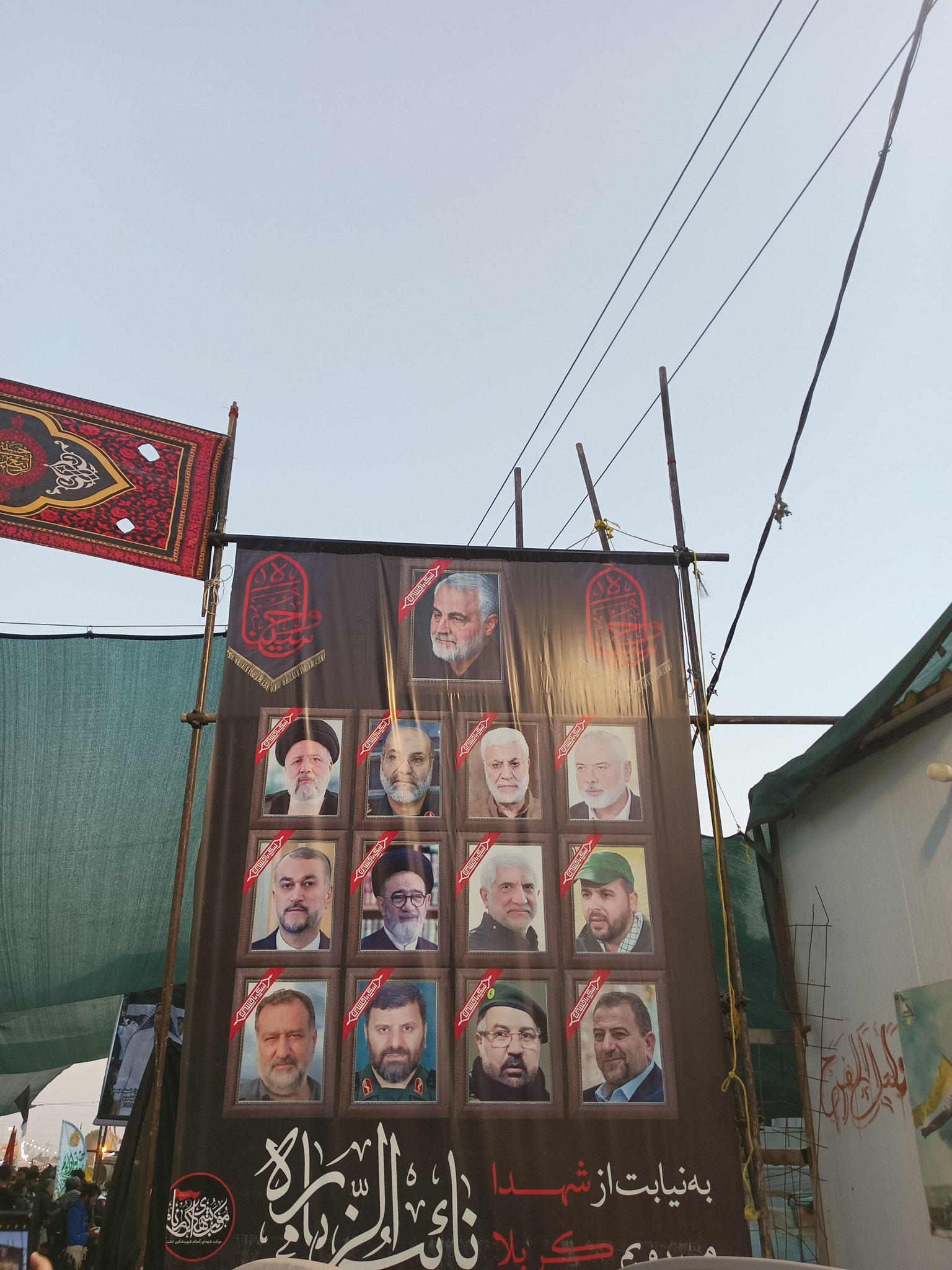
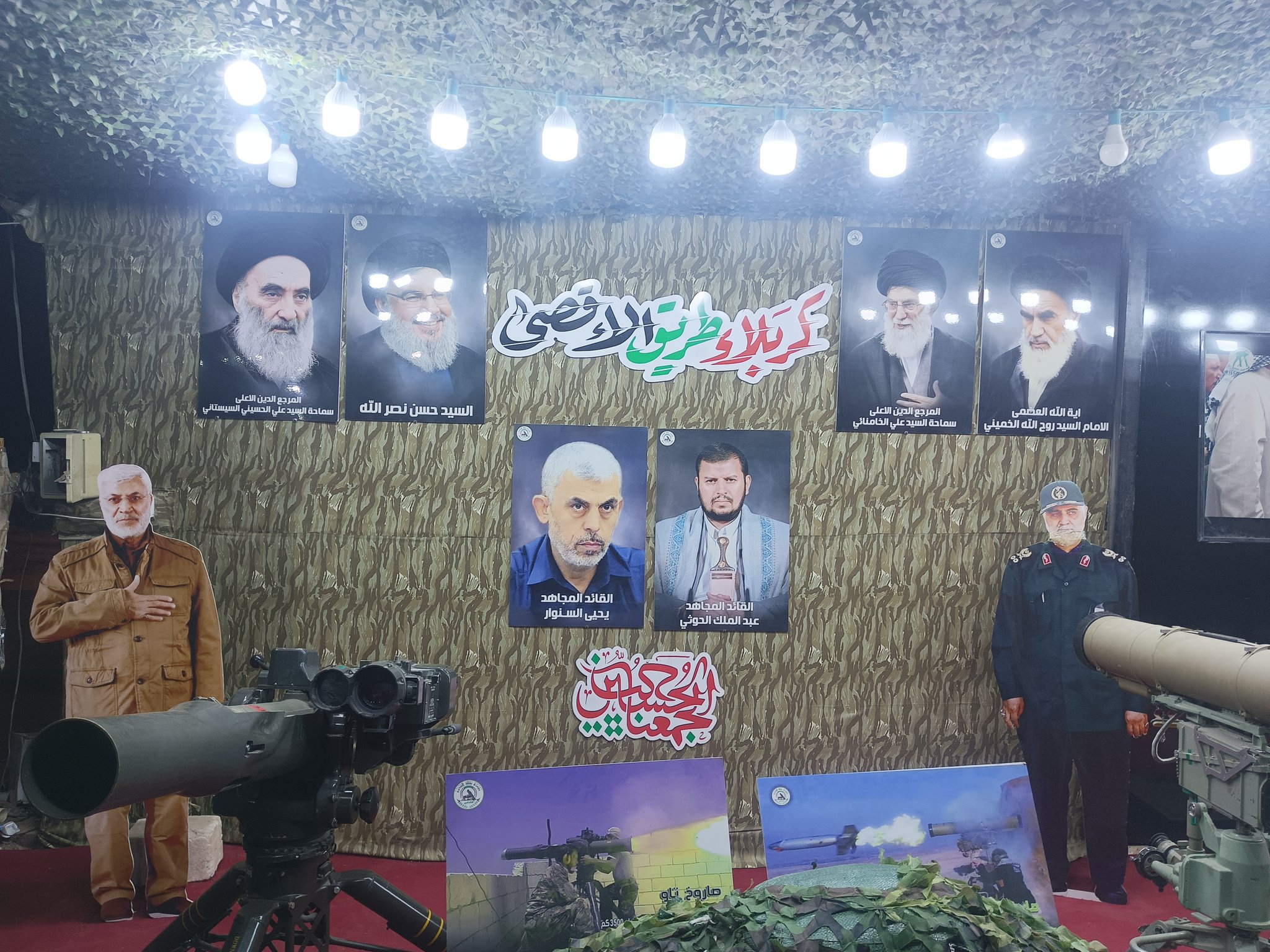
cuck n chad ranking: COTW son edition
A reminder of the rules (which change whenever I want): First row is reserved for UKR vs RUS, because we respect traditions on this website. 2nd and 3rd rows are random, anything can be included here. 4th is just people. I'm doing these once a month these days, enough room to give some new material and I have less free time since lil Hassan spawned.
| Gigachad | Chad | Neutral | Beta (Fe)Male | Virgin Cuck |
|---|---|---|---|---|
| News nerds (us daily Telegram readers are finally vindicated, things are hot again for the first time since 2022) | Putin (downgrade, he took a reputation L with Kursk, but things are going so quick and well on the real front so he's still a chad) | Zaluzhny (he did lots of useless shit as commander-in-chief, but he's vindicated for questioning and refusing to accept some of the current clown show) | Zelensky (little upgrade for our actor, he got some positive coverage for Kursk and got his F-16) | Syrskyi (so stupid and incompetent that he's actually Russia's strongest solider) |
| Hamas, PIJ, Qassam, PFLP and all resistance groups in Gaza (Allah's bravest soliders) | Hezbollah and Iran (based on paper considering past record, but:  |
Cuba olympic team (amazing socialist sports program, but sanctions and athletes immigrating and getting bought by rich capitalist nations have decimated this wonderful program) | Bahrain olympic team (buying a bunch of Armenians and Kenyans just to win gold medals, embarrassing) | LargePenis (this person should never make predictions again, he deseves this cuck place until he understands this) |
| The people of Gaza, especially Yahya Sinwar (bravest people ever) | Ansarallah (undefeated by the great satan and his little cucks, eat shit Saudi Arabia) | Bangladeshi "revolution" (still haven't decoded who's based or not here, but I mostly respect people getting angry and getting out on the streets) | Bernie Sanders (getting more coherent socialist ideas from Theo Von these days) | Lebanese Maronite nationalists (strong competitor to the Iranian diaspora in cucked behavior, imagine wanting your country to get bombed because you don't like Hezbollah and want to speak French like a true comprador cuck) |
| Ismail Haniyeh (lived an honorable life, and died an honorable death) | Pan Zhanle (record-breaking Chinese swimmer that made the mayos seeth) | Kamala Harris (dems did some competent moves, she sucks but she will win just because she kinda looks normal compared to that freak Trump) | Donald Trump (completely fumbled the easiest election ever, has lost his steam and even his getting shot aura) | Emmanuel Macron (familiar place for this cuck, imagine getting booed at your own olympics lmao) |
Very interesting story about the massive political changes in Yemen in the 1940s. Had this saved in Arabic somewhere, so I translated this for you homies and cleaned it up with comrade ChatGPT.
Until the mid-twentieth century, Yemen in the 1700s retained a sense of enduring stability, seemingly impervious to the transformative winds of change. To external observers, Yemen appeared motionless and resistant to evolution. In the northern part of the country, the Zaydi Imamate stood as an institution with an eleven-century legacy, interrupted only briefly on two occasions. The entrenched divides, passed down through generations, manifested predictably in various relationships: Zaydis versus Shafi’is, Zaydis versus the diminishing Isma'ilis, Qahtanis and Seyyids, Upland tribes versus the villages and plantations of Lower Yemen, and coastal towns versus inland towns, among others. Although change had the potential to manifest, the fundamental structure remained steadfast.
Remarkably, Aden, under British administration, thrived as the world's second-busiest port at times, trailing only behind New York City. Meanwhile, families from Hadhramut sought prosperity in far-flung places such as Singapore and Indonesia. International trade in coffee flourished, sustaining activity in the western uplands and a few Red Sea ports, despite a decline initiated by evolving commercial and global cultivation patterns by the mid-eighteenth century. However, these shifts failed to shake the foundations of deeper traditions.
One might have anticipated that Aden, as a bustling port, could become a breeding ground for ideological shifts. It seemed plausible that subversive ideas could disseminate among the diverse migrant labor population, originating from all corners of Yemen, and subsequently find their way back to their respective homelands. Alternatively, returning Hadhramis might import provocative notions from their experiences abroad. Yet, when disruption eventually unfolded, it did so unexpectedly, emanating from a source that caught everyone off guard.
In the aftermath of World War II, the Kingdoms of Iraq and Saudi Arabia identified in Yemen a kindred, traditionalist state, deserving of reinforcement. This was particularly crucial as the Yemeni Imamate was undergoing a significant shift towards hereditary rule, mirroring the established royal traditions in Saudi Arabia and Iraq, in stark contrast to the Zaydi Shia tradition. A strategic plan was devised to enhance and modernize the Yemeni military. In 1940, Iraq implemented a multifaceted approach, flying in Yemeni students for enrollment in its military academy while concurrently dispatching a training mission to Yemen. This mission included Jamil Jamal, a young officer from Mosul, a decision that would prove to have profound consequences.
Merely four years earlier, Jamal had served as the aide-de-camp to the leader of the 1936 coup, directly implicated in the murder of the Iraqi Army's 'founder.' Despite the coup's failure and the demise of its leader, authorities sought to rehabilitate Jamal, consigning him to career exile as an officer in the riverine police. Unexpectedly, he found himself attached to the Yemen training mission, offering an opportunity for redemption. The mission concluded in 1943, yet Jamal chose to remain in Yemen. Five years later, he employed his coup-making skills, aligning with a plot to assassinate the ruling Imam. A new Imam briefly ruled in Sana’a before being overpowered by the slain Imam’s son and Jamal was executed soon after. This event triggered a series of complex local wars in both northern and southern Yemen, financially and logistically supported by regional powers. The ensuing two decades, spanning the 1960s and 1970s, witnessed a convoluted interplay of old cleavages, with Aden losing its significance due to geopolitical shifts brought about by the Arab-Israeli conflict.
Aden, once a bustling maritime destination, diminished in importance as the Suez Canal blockade during the Arab-Israeli conflict rendered it largely irrelevant. By the time the canal reopened, technological advancements allowed ships to travel longer distances without the need for restocking, further diminishing Aden's strategic value. In the late 1970s, a substantial portion of Yemen's male population sought employment as migrant laborers in the oil-rich Persian Gulf countries, reshaping the nation's economic landscape. As remittances from abroad became the primary source of income, Aden and traditional coffee cultivation ceded their prominence. The societal fabric in Yemen began to unravel swiftly, and the dissolution of long-standing structures occurred surprisingly rapidly. This tumultuous period prompted adventurous figures, such as the late President Ali Abdullah Saleh, to actively participate in reshaping Yemen's destiny.
Israel's lack of momentum and them living through their "damn this shit is harder than expected" moment in Gaza reminds me of the Russians near Kiev back in March 2022. Difference is that Russia didn't mobilize like 10% of their population and pulling them out of the work force, and didn't have daily massive protests and internally displaced people being mad 24/7. Really feels like Israel fumbled their big moment, now they're out of momentum while Hamas is basically trolling them, and Hezbollah is making life difficult in the north and keeping everyone busy. Every single hyped PR event has failed for Israel and I'm starting to think that the US is slowly encouraging them to take a step back before internal issues tear Netanyahu's regime apart and massively destabilise the war effort.
My respect for the Qataris has massively increased in recent weeks. They could've easily fully normalised with Israel like the UAE did, but they've carved their own little political power position that I've recently understood and appreciated. They maintain a political relationship with Israel, but that relationship has been genuinely used to improve and save Palestinian lives, like we're seeing now with the ceasefire and the prisoner swap. The traitor Emiratis normalised, fully absorbed themselves into the zionist mindset, have like 40 direct flight's to Tel Aviv every week and are slowly intertwining their economy with Israel's economy. Qatar has never accepted commercial flights from Tel Aviv directly and
Just noticed that next week marks the Kherson withdrawal one year anniversary. Literally nothing gamechanging has happened since then. Wagner took Bakhmut, which is the only notable city changing hands in a whole fucking year. We losers have been reading news for a whole year and if you show anyone a Ukraine War map from Nov 2022 and Nov 2023, the human eye can't see a difference other than the little Ukrainian death bulge near Robotyne. I wish I had learned Chinese or something instead of reading tweets about Wagner tactics in Soledar and Ukrainian leopard Ls in Urozhaine for an hour a day.
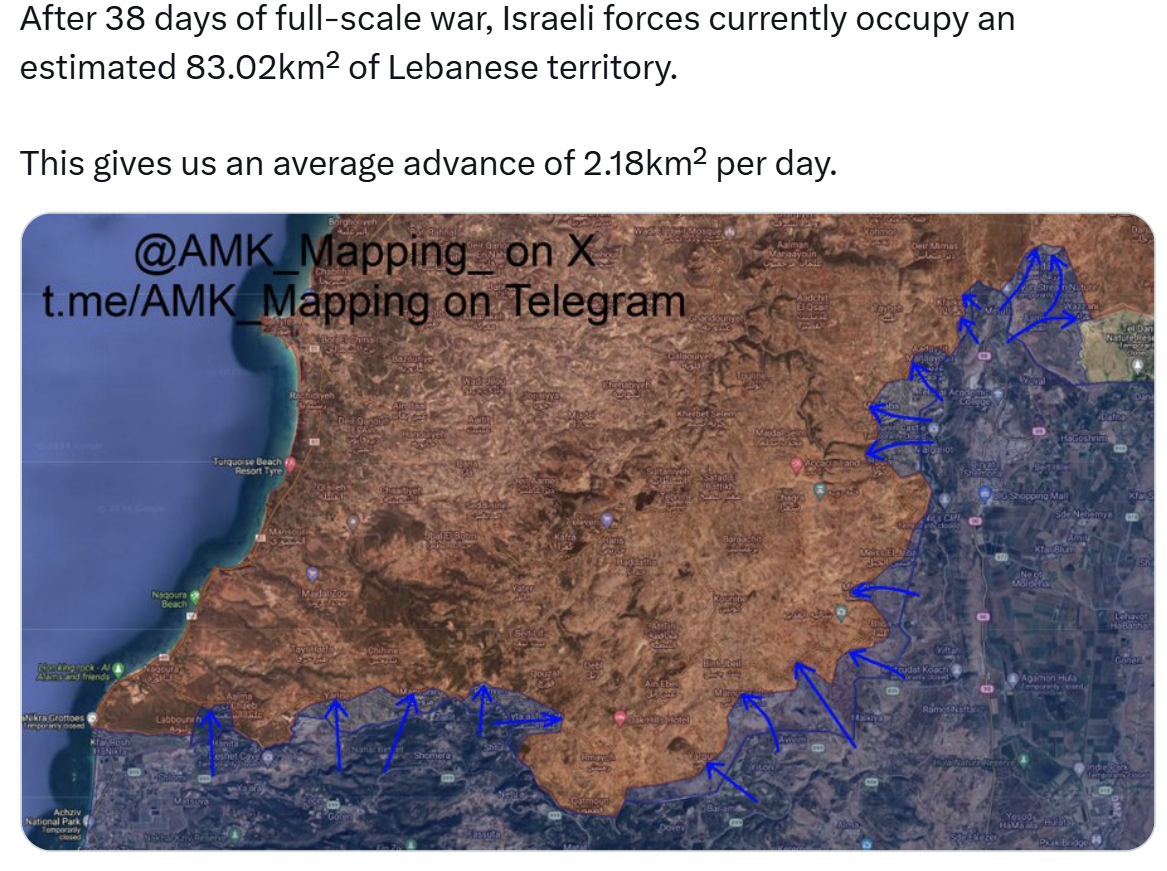
My heart still breaks into a million pieces whenever I see a clip of Nasrallah on twitter or anywhere else. I can't believe he's really gone, I still can't fully accept it. I kept watching a beautiful clip of a Lebanese man in Iraq reading a little poem to mourn him on repeat today. The lyrics were this:
أين نصرالله أين - Where is Nasrallah, where
ليته في الحاضرين - I wish he was present
نحن اقسمنا يمينا - We took an oath
للشهادة سائرين - Towards martyrdom we march
It sounds better in Arabic I promise